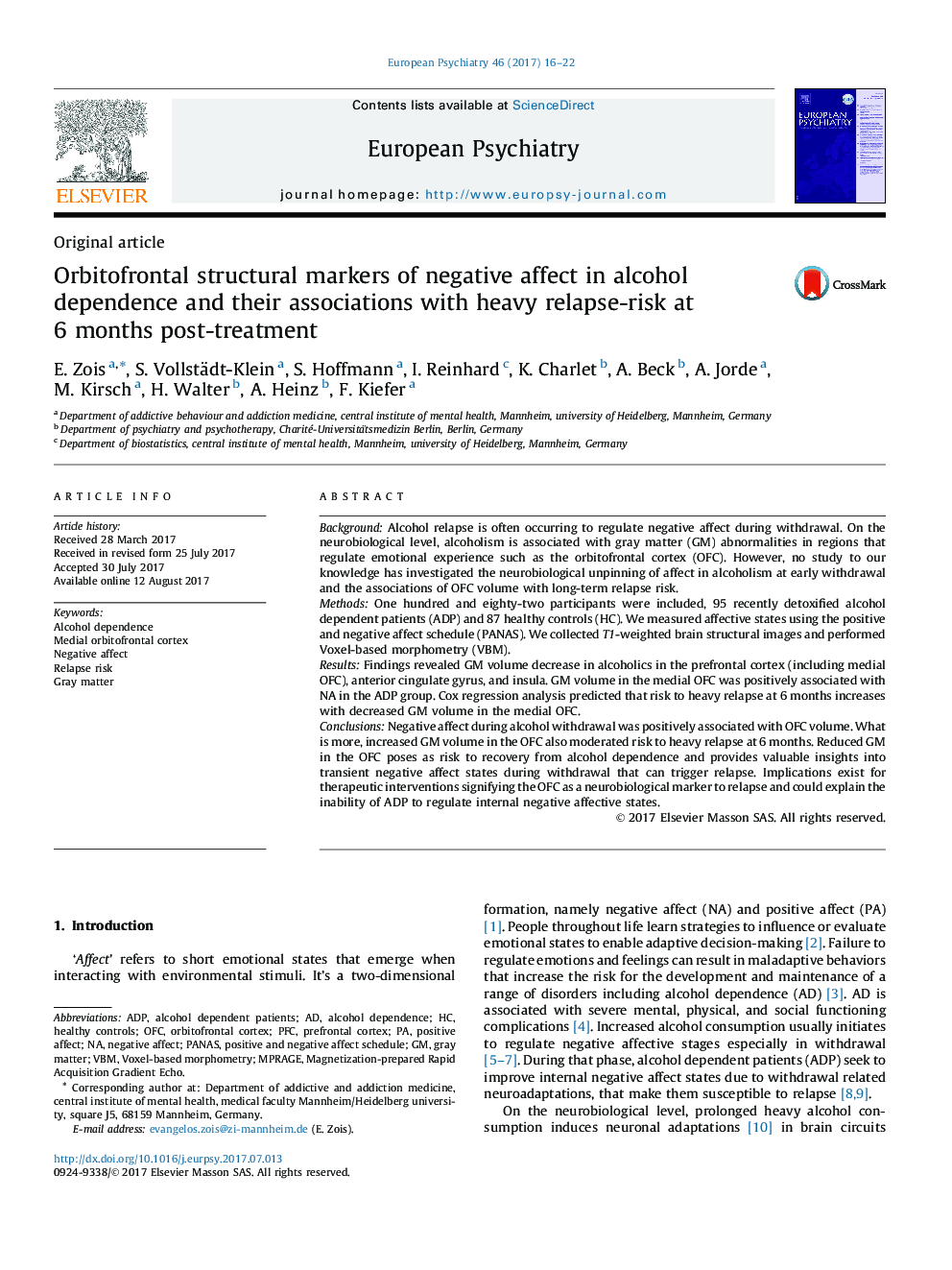| کد مقاله | کد نشریه | سال انتشار | مقاله انگلیسی | نسخه تمام متن |
|---|---|---|---|---|
| 5721337 | 1608044 | 2017 | 7 صفحه PDF | دانلود رایگان |

BackgroundAlcohol relapse is often occurring to regulate negative affect during withdrawal. On the neurobiological level, alcoholism is associated with gray matter (GM) abnormalities in regions that regulate emotional experience such as the orbitofrontal cortex (OFC). However, no study to our knowledge has investigated the neurobiological unpinning of affect in alcoholism at early withdrawal and the associations of OFC volume with long-term relapse risk.MethodsOne hundred and eighty-two participants were included, 95Â recently detoxified alcohol dependent patients (ADP) and 87 healthy controls (HC). We measured affective states using the positive and negative affect schedule (PANAS). We collected T1-weighted brain structural images and performed Voxel-based morphometry (VBM).ResultsFindings revealed GM volume decrease in alcoholics in the prefrontal cortex (including medial OFC), anterior cingulate gyrus, and insula. GM volume in the medial OFC was positively associated with NA in the ADP group. Cox regression analysis predicted that risk to heavy relapse at 6 months increases with decreased GM volume in the medial OFC.ConclusionsNegative affect during alcohol withdrawal was positively associated with OFC volume. What is more, increased GM volume in the OFC also moderated risk to heavy relapse at 6Â months. Reduced GM in the OFC poses as risk to recovery from alcohol dependence and provides valuable insights into transient negative affect states during withdrawal that can trigger relapse. Implications exist for therapeutic interventions signifying the OFC as a neurobiological marker to relapse and could explain the inability of ADP to regulate internal negative affective states.
Journal: European Psychiatry - Volume 46, October 2017, Pages 16-22